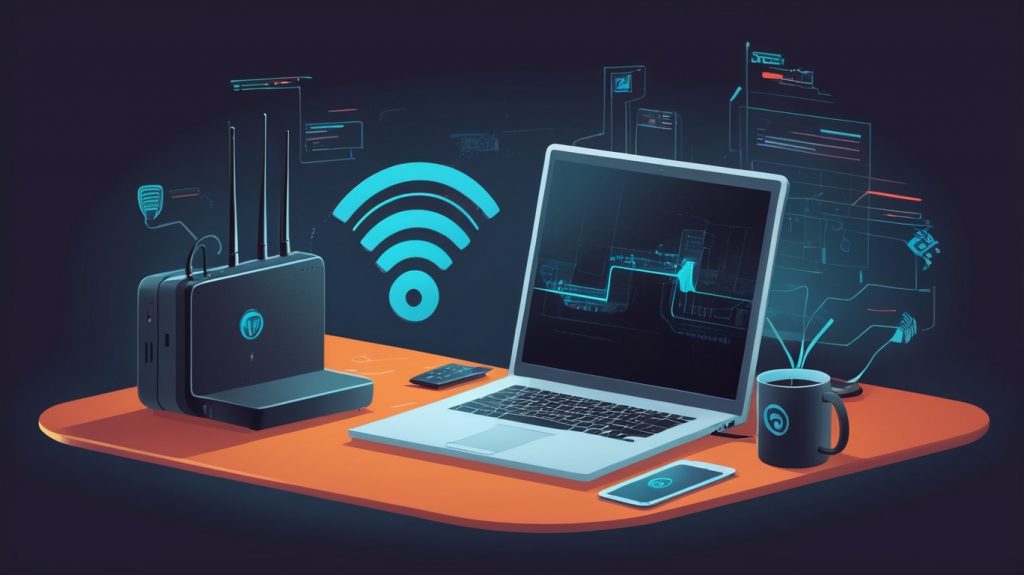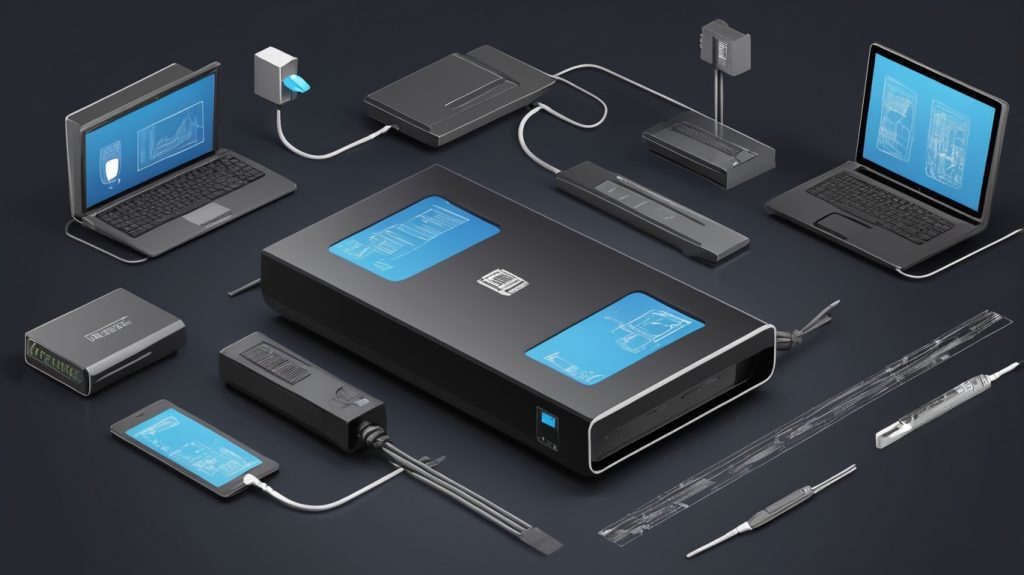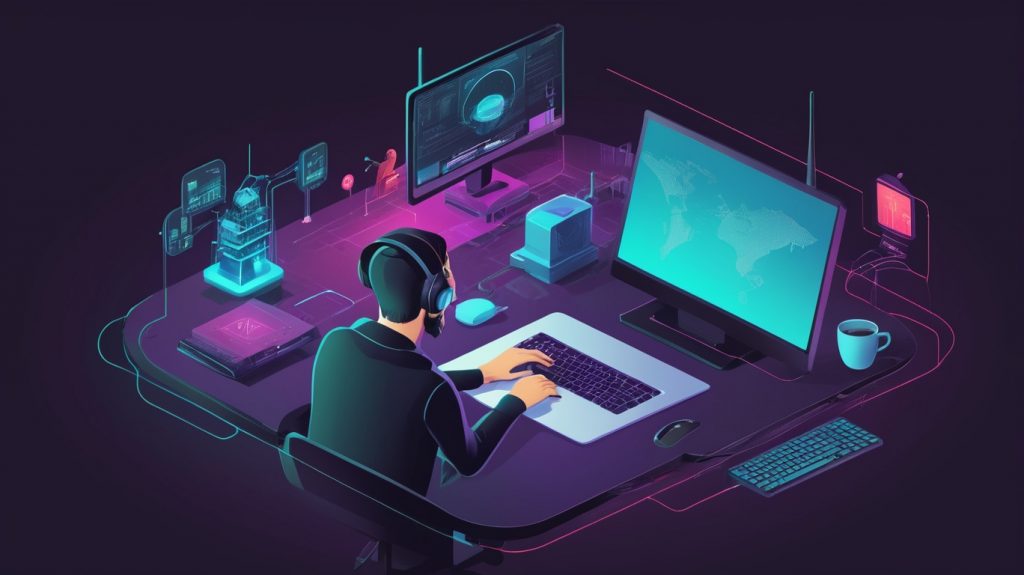Introduction
Every day, thousands of people fall victim to cyberattacks. Targeting various aspects of life, from personal data to financial security, cyberattacks can be extremely devastating. It’s frightening to think how much personal information ends up in the hands of hackers every day.
Cyberattacks are not just scary stories—they happen, and no one is completely immune. In this article, we will examine ten types of cyberattacks that could affect any of us and show you how to protect yourself against them. I’m sure some of them will truly surprise you.
“The best defense is awareness. Security is not a product, it’s a process.” — Bruce Schneier
1. Data Theft via Fake Wi‑Fi Networks
When we travel, open Wi‑Fi networks are often tempting. However, not all of them are safe. Hackers frequently create fake networks that appear to belong to cafes or airports. Once you connect to such a network, you risk handing over your data to the attacker.
How to Avoid This Attack
- Always verify that the Wi‑Fi network truly belongs to the establishment.
- Use a VPN when connecting to public networks to encrypt your data.
- Do not enter confidential data while on public networks.

2. Hacking a Home IoT Device
Today, many homes are equipped with smart devices—from cameras to smart speakers. These devices can become targets for hackers if they are not properly secured. Through them, attackers may spy on you or even take control of your devices.
How to Avoid This Attack
- Set strong passwords on all IoT devices and update them regularly.
- Disable remote access if it is not needed.
- Install firmware updates to patch known vulnerabilities.
3. SMS Phishing and Theft of Banking Data
Attackers send SMS messages with fake links to websites that look like those of banks. On these websites, you may be asked to enter your password or card details, which are then used to steal your funds.
How to Avoid This Attack
- Never click on suspicious links in SMS messages or messengers.
- Verify the authenticity of the sender’s number.
- Enable two-factor authentication to protect your accounts.

4. “Stealth” Browser Attack for Password Theft
So-called “stealth” attacks involve malicious scripts that can run in your browser without your knowledge. Hackers use these scripts to steal saved passwords, track activity, and even install spyware.
How to Avoid This Attack
- Use script and ad blockers such as uBlock Origin.
- Regularly clear your browser’s cache and cookies.
- Use a password manager instead of storing passwords in your browser.
5. Exploiting Open Ports to Hack Devices
Many devices have open ports, making them vulnerable. Hackers can exploit these ports to gain access to the system and launch attacks. This often occurs on devices connected to the network that are not properly secured.
How to Avoid This Attack
- Regularly scan your device’s ports using tools such as Nmap.
- Disable all unused ports.
- Install and configure a firewall to block unwanted connections.

6. Attacks on Corporate Networks Through Employees
Hackers often target corporate networks through employees by sending phishing emails or requesting information under the guise of management. A careless employee might inadvertently give access to critical information.
How to Avoid This Attack
- Train employees in cybersecurity awareness.
- Use email protection to block suspicious messages.
- Implement multilayered data protection within the corporate network.
7. Spam and Malicious Files in Messengers
Many of us are accustomed to receiving files and links through messengers. Hackers take advantage of this by sending spam and malicious software. A simple click on a link or downloading a file may result in your device being infected.
How to Avoid This Attack
- Never open links or files from unknown senders.
- Use antivirus software to scan incoming files.
- Be cautious of suspicious files and verify with the sender if in doubt.
8. Data Theft Through Email Hacking
Email contains a lot of personal information. Hackers can gain access to your mailbox and use it to steal data or even access other accounts.
How to Avoid This Attack
- Enable two-factor authentication for your email.
- Use strong and unique passwords.
- Be wary of phishing emails and do not click on suspicious links.
9. Data Encryption and Ransomware
Hackers can encrypt data on a device and demand a ransom for its recovery. This type of attack, known as ransomware, affects both personal data and corporate networks by locking access to entire systems.
How to Avoid This Attack
- Regularly back up your data.
- Do not download suspicious files or click on links from unknown sources.
- Install antivirus software that can prevent the installation of malicious code.
10. Data Theft from Mobile Applications
Many apps request access to data on your phone, and if not properly scrutinized, they may use this data for unwanted purposes. Hackers can breach such apps and steal your data.
How to Avoid This Attack
- Download apps only from trusted sources, such as Google Play or the App Store.
- Monitor the permissions you grant to applications.
- Regularly update your apps to patch known vulnerabilities.

Conclusions
The cyberattacks we discussed can happen to any of us. They demonstrate the importance of being vigilant about your security. By setting strong passwords, using VPNs, training employees in cybersecurity, and regularly checking your devices for vulnerabilities, you can reduce the risk and protect your personal data.
FAQ
- Why should I update my apps and devices? — Updates patch vulnerabilities discovered by developers or security experts.
- How often should I scan ports? — Once a month or after any configuration updates.
- Do I need to use a VPN? — Yes, especially on public Wi‑Fi networks, as it helps protect your data.
Additional Resources
- Official Nmap Documentation.
- The book “Nmap Network Scanning” by Fyodor.
Попробуйте ScaniteX бесплатно!
Автоматизированная платформа для сканирования открытых портов и обнаружения активных сервисов в режиме онлайн.
Начните 24ч пробный период (промокод FREE10), чтобы протестировать все функции сканирования для безопасности вашего бизнеса.
Получить бесплатный триал



Комментарии